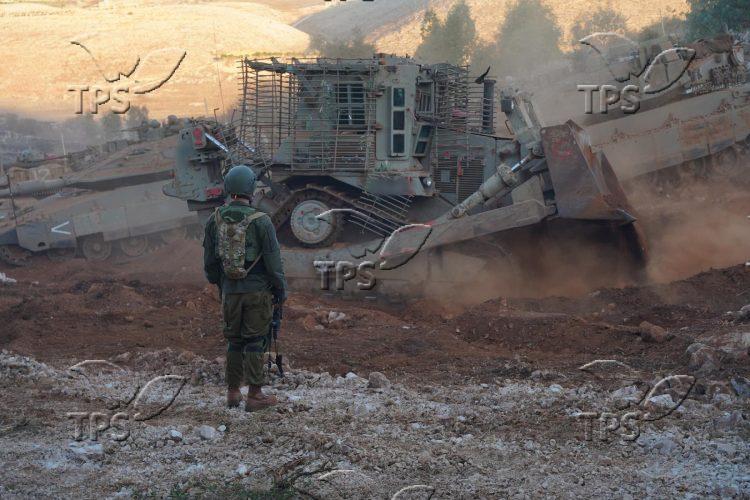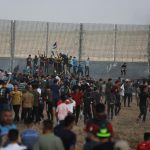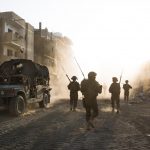Lebanon-Gaza Link Severed? Hezbollah Appears to Back Down on Key Ceasefire Condition
Jerusalem, 10 October, 2024 (TPS-IL) -- Diplomatic efforts to secure a ceasefire in Lebanon have intensified as Hezbollah dropped its demand for a Gaza truce as a condition for a ceasefire with Israel.
Till now, Hezbollah insisted it would not halt its daily rocket fire unless Israel first ended its war with Hamas.
The push to decouple Lebanon from the Gaza war has gained momentum as Israel continues eliminating senior Hezbollah figures and presses a ground operation in southern Lebanon.
Arab sources confirmed to The Press Service of Israel that negotiations are advancing along two tracks.
One track involves discussions between the United States, Saudi Arabia, and Qatar, aimed at steering Lebanon towards political reforms and potential elections. The second, more sensitive track, involves indirect talks between the U.S. and Iran, with Tehran reportedly using its influence to bring Hezbollah and Hamas toward a ceasefire.
A key moment in this diplomatic push came with a speech by Hezbollah’s deputy secretary-general, Naim Qassem, which was interpreted as a shift in the group’s stance. In a move likely influenced by Iran, Qassem on Tuesday said Hezbollah supported a political initiative for a ceasefire being led by Nabih Berri, Lebanon’s parliamentary speaker. Qassem notably did not cite any conditions or tie Hezbollah’s actions to Israel’s war with Hamas.
The rhetorical shift is viewed in Lebanon as an Iranian-directed attempt to distance Hezbollah from Hamas, in hopes of protecting Lebanon from being further embroiled in the Gaza conflict. Lebanese reports suggest that Iran’s wants to secure a ceasefire to allow Hezbollah to save face and preserve its military capabilities without being drawn into further fighting over Gaza.
Negotiations to break Lebanon’s linkage to the Gaza war are rooted in the framework of United Nations Security Council Resolution 1701, which ended the Second War in Lebanon of 2006.
That resolution, which was accepted by both Israel and Hezbollah, called for “the disarmament of all armed groups in Lebanon” and stressed that southern Lebanon was to be demilitarized, the exception only Lebanese government forces and UNIFIL peacekeepers. No foreign force would operate in Lebanon without the government’s consent.
But Hezbollah never disarmed or withdrew from the border, the Lebanese government never extended its control over southern Lebanon, and its foreign allies — most notably Iran’s Islamic Revolutionary Guards Corp and Hamas — have openly operated there for years.
Lebanese political factions, buoyed by growing international support, are pushing for elections and a political settlement based on this resolution in the hope of stabilizing Lebanon and reducing Hezbollah’s influence.
However, Israel has expressed dissatisfaction with the scope of these discussions, calling instead for the broader implementation of UN Security Council Resolution 1559. This resolution, passed in 2004, also calls for the disbanding of all militias in Lebanon and directly targets Hezbollah’s military presence and influence. Israeli officials insist that any ceasefire or political settlement in Lebanon include disarming Hezbollah.
On the ground, the Lebanese government is making a show of taking steps to assert greater control over its borders and key infrastructure. The Lebanese army was recently granted expanded authority to oversee security at Beirut International Airport. This move came in response to U.S. calls for increased monitoring of air traffic and cargo.
The decision to empower the Lebanese Armed Forces is widely viewed as part of a U.S. strategy to bolster Lebanese sovereignty while cutting down Hezbollah’s influence.
After the Hamas attacks of October 7, 2023, the Iran-backed Hezbollah began firing rockets and launching drones at northern Israel communities, killing 51 people. According to figures released by the government on Sept. 29, more than 68,000 residents of northern Israel are displaced from their homes. Hezbollah leaders have repeatedly said they would continue the attacks to prevent Israelis from returning to their homes.
Israel’s war goals include securely returning northern residents to their homes.







